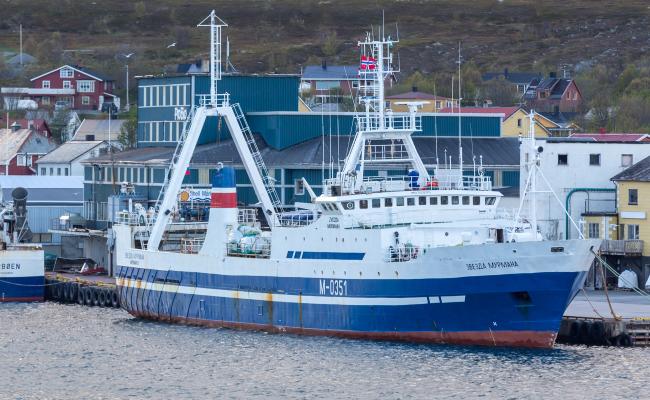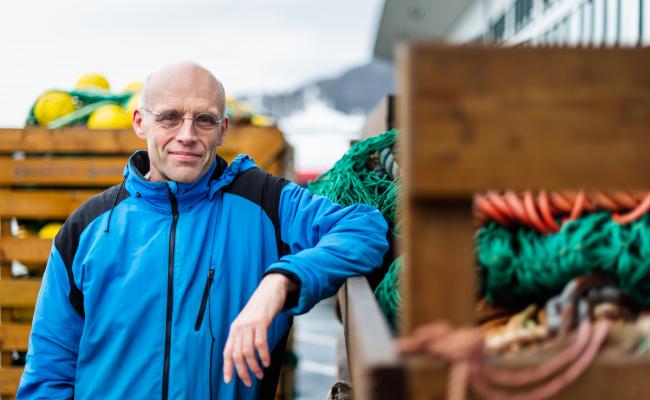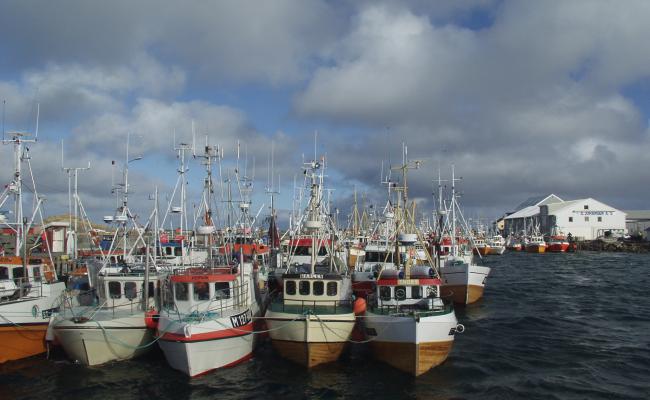Continued Uncertainties Regarding Norwegian-Russian Fisheries Negotiations
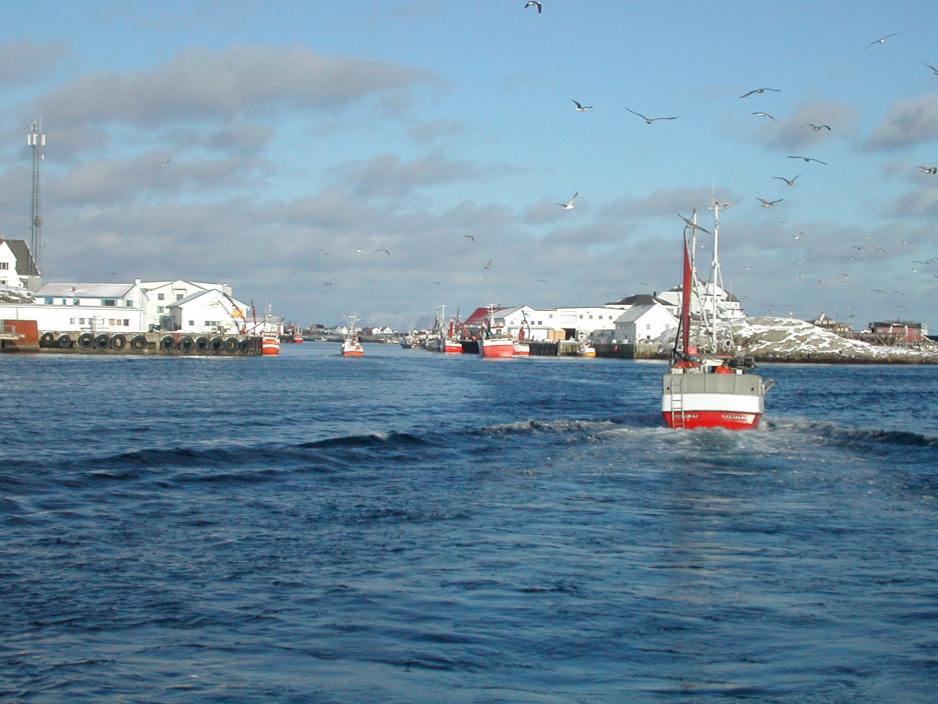
Fishing vessels in Lofoten, Northern Norway. (Photo: the Norwegian Society for Sea Rescue)
The date for the negotiations in the Joint Norwegian–Russian Fisheries Commission about next year's cod quotas has not been determined. However, the parties have agreed to continue the talks, says the Norwegian Ministry of Trade, Industry and Fisheries.
A date has not yet been set for the ordinary fisheries negotiations between Norway and Russia, said the Norwegian Ministry of Trade, Industry and Fisheries to High North News on Wednesday.
However, the ministry underlined that the parties have agreed to continue the talks.
The fisheries negotiations in short
- The fisheries negotiations between Norway and Russia take place in the Joint Norwegian–Russian Fisheries Commission.
- The parties meet annually to set quotas for the upcoming year for the following stocks in the Barents Sea: north-east arctic cod, north-east arctic haddock, capelin, Greenland halibut, and redfish.
- The commission also agrees on mutual fisheries in each other's zones.
- The quota advice for the Barents Sea is usually anchored in the International Council for the Exploration of the Sea (ICES). But due to the war in Ukraine, ICES suspended Russia in March 2022.
- Norway has exempted Norwegian-Russian fisheries cooperation from the sanctions against Russia. Therefore, the quota advice is bilateral and delivered by the research group in the Norwegian-Russian Fisheries Commission.
Source: Regjeringen.no and Norwegian Institute of Marine Research.
Sanctions against Russian shipping companies
The negotiations, in which the parties determine the quota for stocks in the Barents Sea, such as the cod, normally take place in October each year.
However, the situation is more demanding now than it has been in previous years.
As HNN has reported, Russia announced retaliatory measures in August after the Norwegian government decided to list the two Russian fishing companies, Norebo JSC and Murman Seafood.
The measures entail that ships belonging to the two shipping fisheries companies will lose access to Norwegian ports and territorial waters. As a general rule, licenses for fishing in the Norwegian economic zone will not be granted to vessels from the two companies, wrote the Norwegian Ministry of Foreign Affairs in a press release.
From the Norwegian side, we wish to continue the cooperation on stock management in the Barents Sea.
By listing the two companies, Norway aligned itself with the sanctions adopted by the EU on May 20, when the EU adopted new listings under its restrictive measures in light of Russia’s destabilizing activities, also known as the hybrid sanctions regime.
"Recently we have seen increasingly aggressive Russian hybrid campaigns against allied nations. This trend is expected to continue. As a basis for the listings, the EU points to the fact that the two fishing companies Norebo JSC og Murman Seafood are part of a Russian state-sponsored surveillance campaign and intelligence activity targeting critical underwater infrastructure in Norwegian and allied maritime areas. Such activity may facilitate future sabotage operations and threaten important Norwegian security policy interests," said Foreign Minister Espen Barth Eide in the press release.
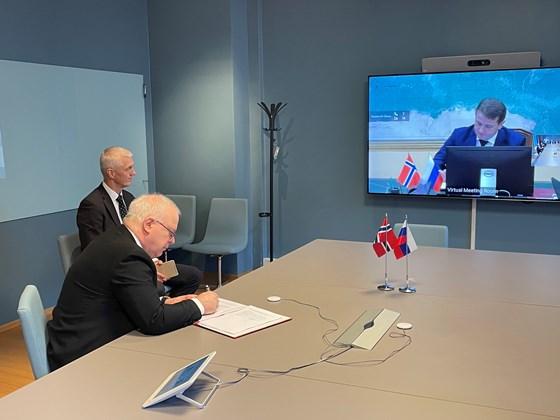
Archive photo from the signing of the Norwegian-Russian fisheries agreement for 2022. The Deputy Secretary General and then delegation leader Morten Berg signed the agreement on behalf of Norway. (Photo: the Norwegian Ministry of Trade, Industry and Fisheries)
Announced retaliatory measures
Ilya Shestakov, Head of the Federal Agency for Fishery in Russia, said to the Russian state news agency TASS in August that the country would close its exclusive economic zone for Norwegian fishing vessels if the Norwegian side did not reconsider its position within a month.
"Furthermore, fisheries and the allocation of quotas in the open waters in the Barents and Norwegian Seas will be carried out on the basis of Russian national interests," he added.
Agree to continue the talks
To HNN, the Norwegian Ministry of Trade, Industry and Fisheries writes that the parties had an extraordinary commission meeting in August, at which they agreed to meet again to continue the talks. A new meeting took place on Monday, October 6th.
"From the Norwegian side, we wish to continue the cooperation on stock management in the Barents Sea. The fisheries cooperation has persisted through changing political landscapes, and we have a tradition of cooperation and finding solutions to contribute to sustainable management."
"The parties agree to continue the talks," underscores the ministry.
Adheres to the 2024 agreement until the end of the year
Last week, the Russian state news agency TASS furthermore published comments from Shestakov of the Federal Agency for Fishery in Russia, in which he announced that retaliatory measures against Norwegian fishing vessels could be implemented this year.
However, he adds that the situation is not yet impacting fish stocks.
"This year, we are still acting according to the agreements we reached in 2024. Therefore, the situation is currently developing as expected until the end of the year," he explained, and added that Norway's measures will have consequences starting in 2026.
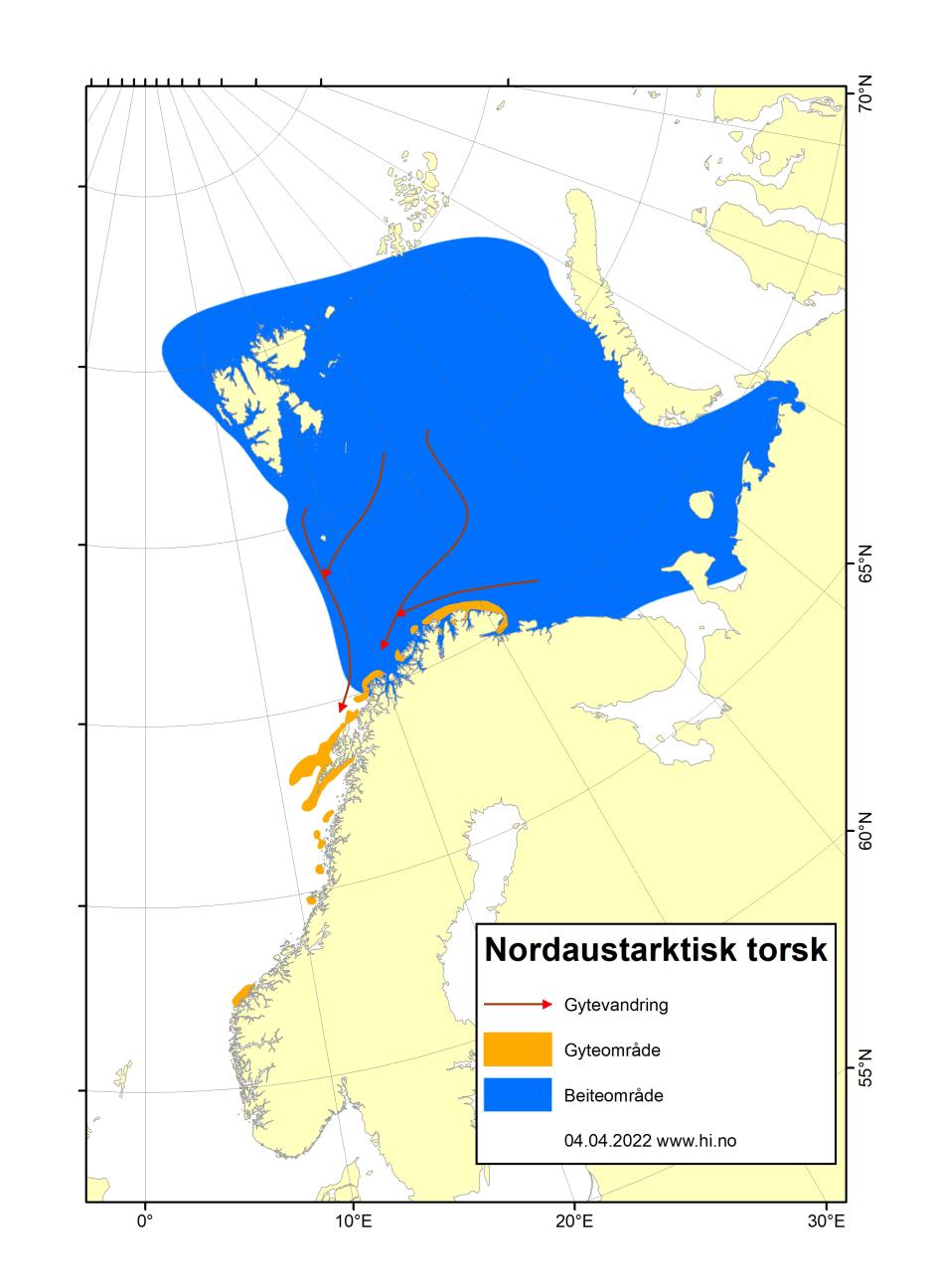
Map of the distribution of North-East Arctic cod. (Illustration: the Norwegian Institute of Marine Research).
Recommends yet another quota reduction
Anne-Kristin Jørgensen, Senior Researcher at the Fridtjof Nansen Institute, has previously stated to HNN what the Russian measures could entail in practice if they are implemented.
"It is not the worst thing if Norwegian fishing vessels lose access to the Russian economic zone. Not many Norwegian vessels fish there now," said Jørgensen and added:
"Setting their own quotas, however, is of greater significance. If the parties do not reach a quota agreement for next year, the consequence will be that Norway and Russia must set their own quotas in their own waters."
Jørgensen pointed out that the fisheries cooperation between Norway and Russia has survived several crises, but that none can be compared to the current situation.
If no fisheries agreement for 2026 is reached this fall, it will likely not entail any immediate danger of fish stocks collapsing, she stated.
"It would still be a serious situation, given that the stocks are at such a low level."
Ocean researchers are still worried about the cod stock's decline and are recommending yet another cod quota reduction for 2026.



